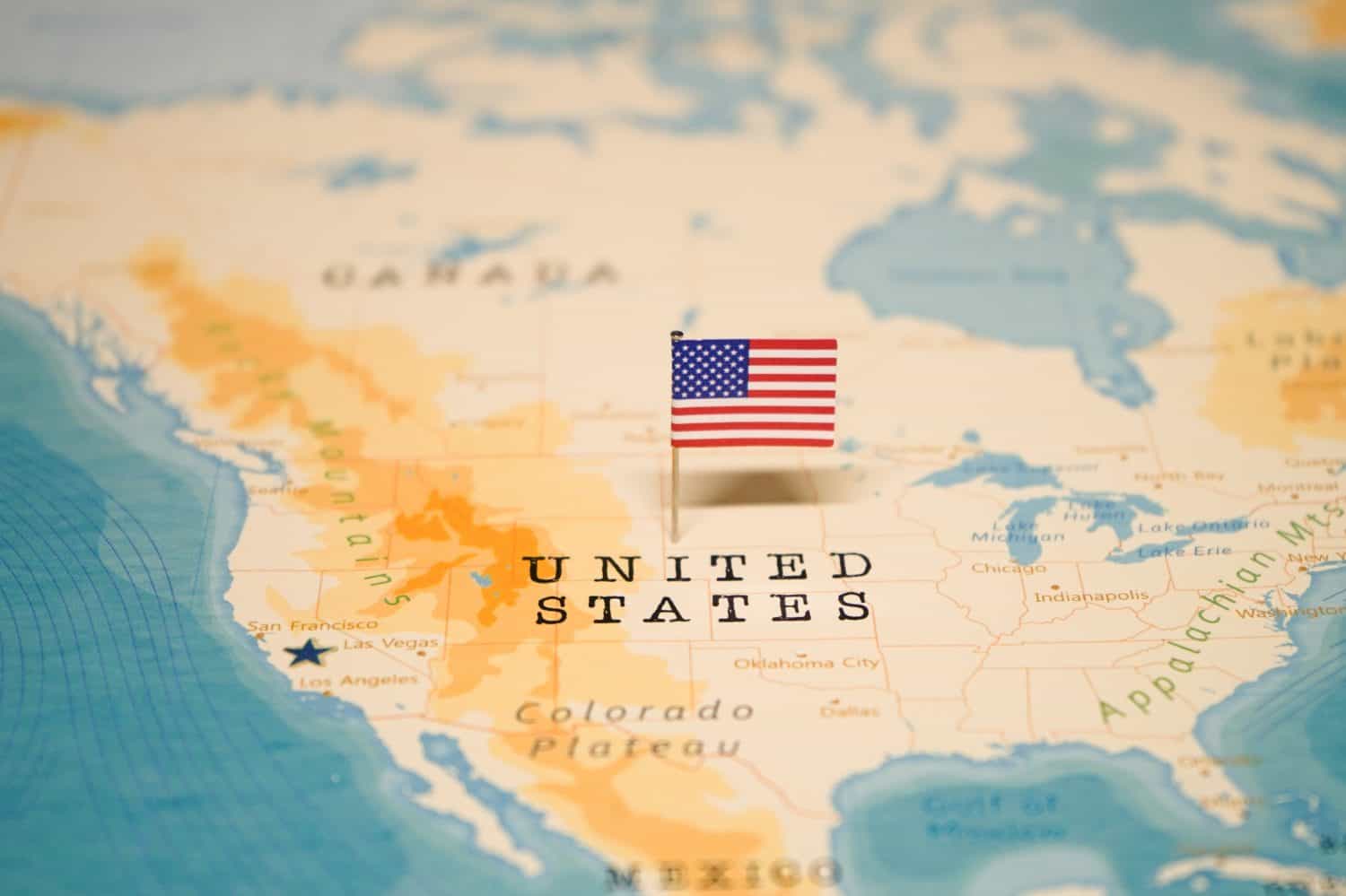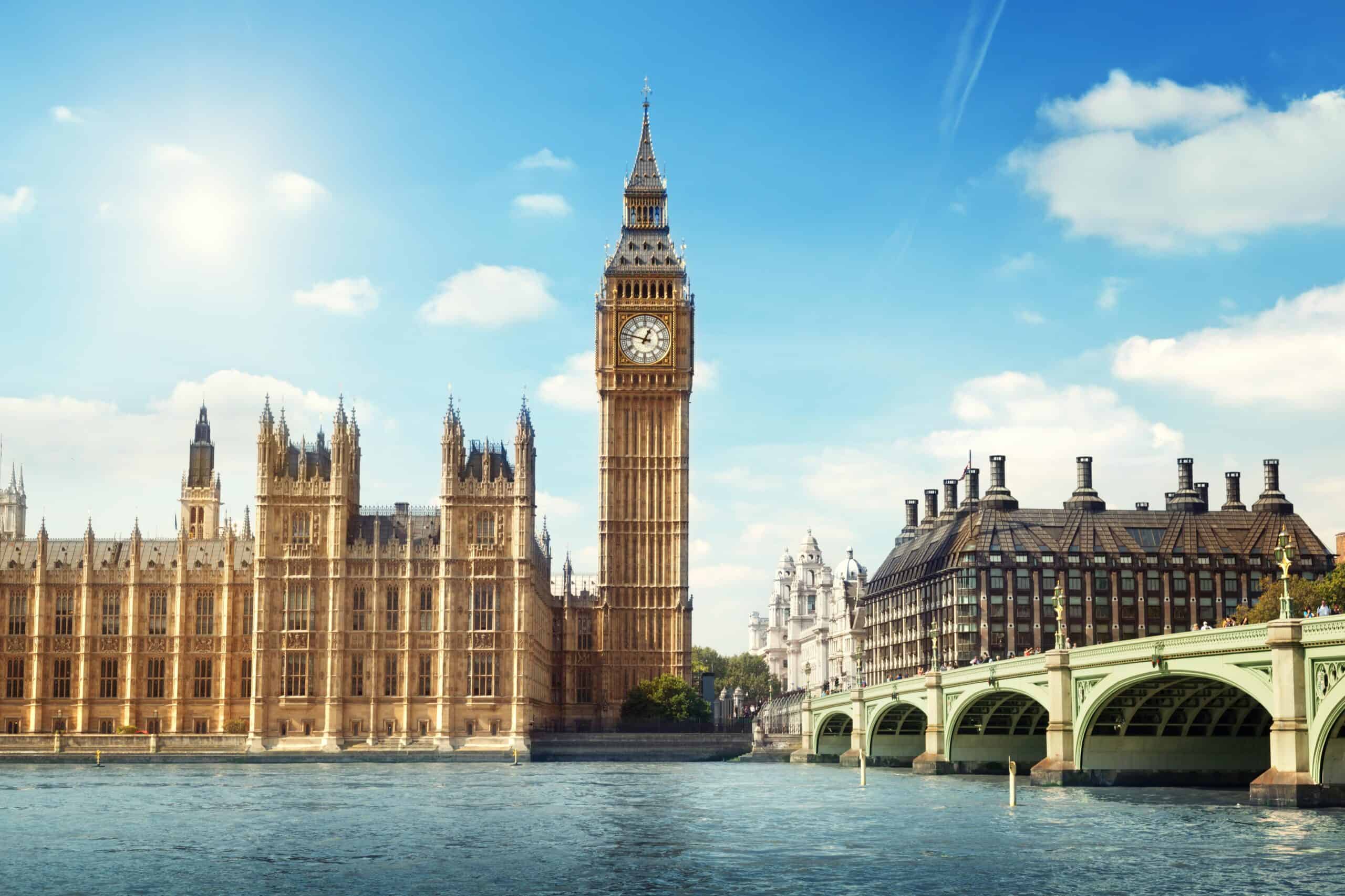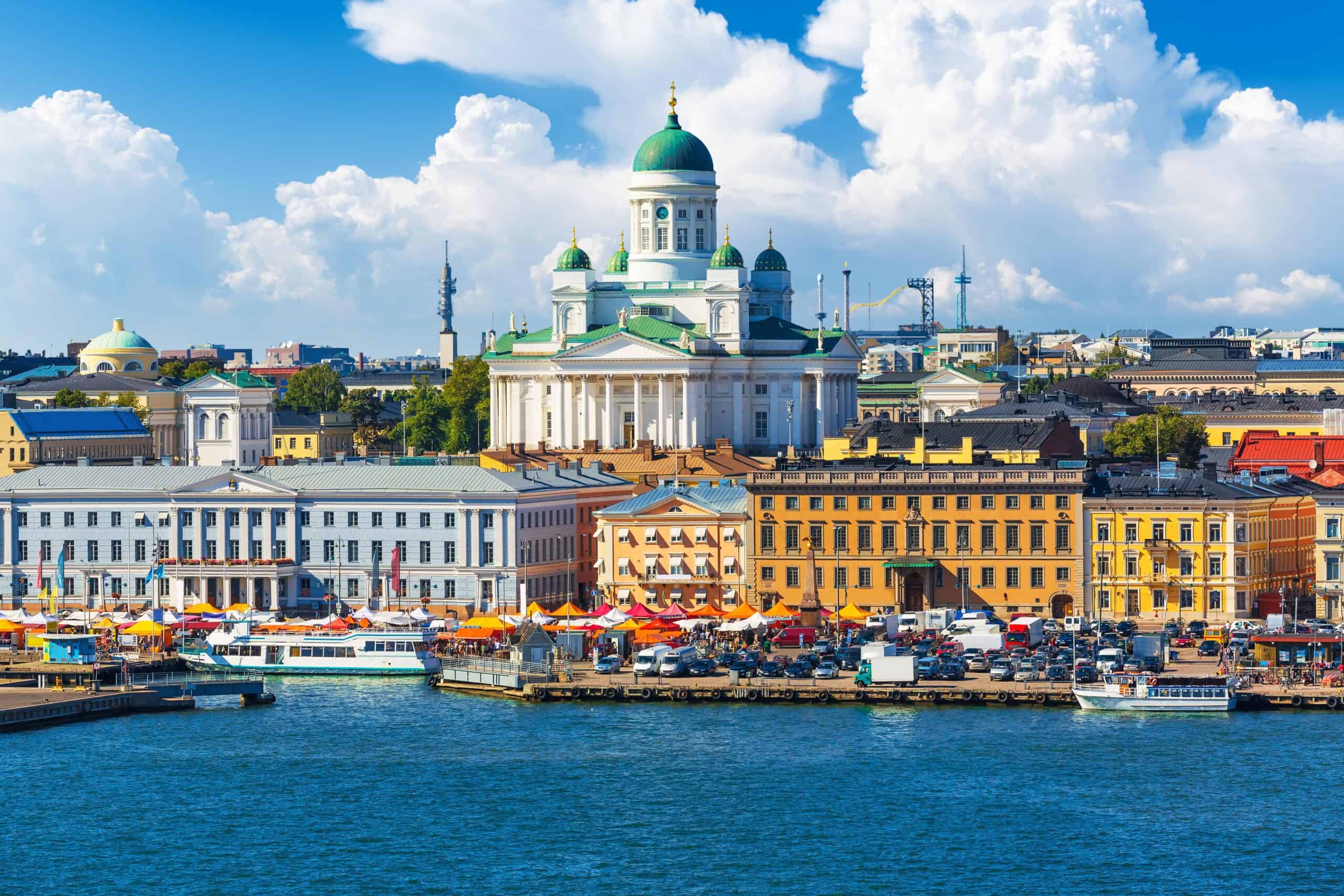Politics
These 21 European Countries Love US Leadership the Most

Published:
Last Updated:

Countries don’t exist in a vacuum. Our domestic and foreign policies, our decisions, laws, and the way we talk about other nations have an impact on how those countries view us and interact with us. As far-right extremists and nationalist parties grow in number and violence around the world, particularly in America, it is important to remember how those actions impact our standing in the world.
Our position as the “leader of the free world” is not a given. It was purchased with the blood of thousands of young people and the dedicated hard work of millions more. It falls to us to use that power and responsibility in a caring and intelligent way. One of the best ways to know if we’re doing just that is to see what other people around the world think about the job we’re doing.
So, let’s start with Europe, which has historically been home to our closest allies and strongest opponents. Of all the countries that call Europe home, which ones approve of U.S. leadership the most?
All the data for this list was taken from Gallup and their “Rating World Leaders: The U.S. vs. Germany, China and Russia” report, published in 2024. All these data are current as of 2024.

As the most powerful nation in the history of the world, our actions have far-reaching consequences. While nationalists and extremists might scoff at international approval of American leadership, it is often a barometer for the quality of American leadership, the state of public opinion at home, and an important factor in foreign policy. The more we take the opinions of other people into consideration, the better chance we have of living in a fair, peaceful, and equitable world.

Luxembourg’s culture and people are heavily influenced by France and Germany, so wherever the cultural tides are shifting in those countries, it makes sense that Luxembourg wouldn’t be far behind.
As a founding member of the European Union and a former member of the United Nations Security Council, its interests are generally aligned with the foreign policy of the United States.

American products used to carry an inherent implication of quality, but as the quality of American products dropped and European markets improved, France (along with most of Europe) moved as far away as they could from American influences. In French, in particular, to be “French” means to not be American. To them, Americans are “conformists, materialists, racists, violent, and vulgar”. While relations between the U.S. and France have improved dramatically as the two countries work together to support Ukraine against Russia, this might prove to be a temporary bump.

When Moldova declared independence from the Soviet Union, the United States was quick to recognize its independence and establish an embassy. The United States has sent millions of dollars to help combat corruption in the country and even held trilateral military exercises with Romania and Moldova in August of 2024.
The United States’ support for Moldova and the fight against Russia, especially after a Russian-backed coup attempt in the country, has particularly helped their approval rating.

Austria is a member of the U.S.-led Partnership for Peace initiative of NATO. Austrian and U.S. troops have often fought together in conflicts in the region. Austria only gained full independence in 1995, so its relations with the United States are also relatively new and developing.

Norway and the United States have enjoyed a long history of positive interactions and relations. The first visit to Norway by a U.S. president was by Bill Clinton, and since then the two countries have worked on securing safe transatlantic transportation, preserving the Arctic environment, and economic development of all Baltic countries.

President George W. Bush said that the Netherlands and the U.S. are “brother nations” and President Barack Obama said they are “the closest friends which friendship will never die”. The two countries often work closely together on international initiatives. The United States is the third-biggest foreign investor in the Netherlands.
The U.S. approved the delivery of F-16 jets from the Netherlands to help with the war in Ukraine. Despite its history as a neutral country, the Netherlands has often supported the United States in military conflicts and engagements.

The United States and Latvia formally created diplomatic relations in 1922 and the U.S. never recognized its forced incorporation into the U.S.S.R., and views Latvia’s current government as the normal continuation of the government that preceded its Soviet integration.
The two countries have signed multiple treaties including those for trade, investment, mutual legal assistance, intellectual property protection, extradition, and more. Latvia is among the “most-favored-nations” of those with whom the United States has relations.

Official relations with Denmark stretch back to shortly after the American Revolutionary War, in 1783. Like other countries on this list, both the United States and Denmark are members of NATO, OSCE, OECD, the Arctic Council, and the United Nations. The United States is Denmark’s largest trade partner outside Europe and Copenhagen has become a hub for U.S. business in the entire Baltic and Nordic region.
Both countries support each other in the war in Ukraine, and President Biden praised Denmark for “standing up” for Ukraine.

Belgium and the United States have enjoyed long friendly and positive relations. Many U.S. companies have established their European headquarters in Belgium, leading to closer relations and higher approval ratings.

U.K. approval of the United States took a nosedive during the Trump presidency, with large protests against his anti-immigration proposals, racism, and misogyny. There were further protests when he announced he would recognize Jerusalem as the capital of Israel. Protests and demonstrations against his influence in the U.K. continued, including a petition to rescind his invitation to visit.
The approval rating improved under the Biden administration, but the chaotic and disastrous withdrawal from Afghanistan, with roots in the Trump presidency, negatively impacted approval ratings again.
The United States is the U.K.’s largest export customer and they share the world’s largest direct investment partnership. The close ties of commerce, business, and other industries mean that public and cultural movements and approvals are often very close.
The recent election of Keir Starmer as the new prime minister of the U.K. signals a similar movement to the left for both countries, and closer ties and approval for more worker-focused and socialist legislation.

Like many other countries, Spain’s approval rating of U.S. leadership took a major hit during the Trump presidency. Major points of disapproval were anti-immigration policies and a significant move toward protectionism and isolationism.
During the Biden presidency, both countries came together to make a declaration in order to improve and enhance existing relations. Approval ratings have since improved a little. However, recent polls have shown that around 60% of all Spaniards view the United States negatively, regardless of their thoughts on U.S. leadership.

Due to Finland’s close proximity to Russia, the United States has significant reason to ensure it has a favorable opinion of its leadership.
President Biden approved the entry of Finland into NATO in 2023 and then the two countries signed a Defense Cooperation Agreement that same year. Given Russia’s aggression in Ukraine, the pressure for other border nations to find strong allies has increased, leading to higher approval as that support is materialized in military hardware.

The relations between Estonia and the United States are generally reflected in the relations between Estonia and Russia. The approval of Russian leadership has always been low with relations being cold between the two countries, but approval dropped sharply after Russia’s invasion of Ukraine, with a rise in approval of U.S. leadership as a result since the U.S. has always taken a hard stance opposed to Russian aggression.

The Portuguese approval of U.S. leadership is strongly tied to the level of economic and corporate involvement between the two countries. The U.S. is Portugal’s biggest trade partner outside Europe and the fourth biggest customer of Portuguese exports overall. The government of Portugal generally encourages more U.S. investment in their country, with many large computer, retail, and pharmaceutical U.S. corporations choosing to base their European headquarters there. As the economic partnerships improve, the approval rating will also tend to increase.

German approval of U.S. leadership in Europe dropped significantly during the Trump presidency, especially after several negative comments Trump made about Germany and the German people.
President Biden has worked to undo some of the damage done by Trump, including putting a pause on Trump’s withdrawal of U.S. troops from bases within Germany.
With the rise of right-wing parties in Europe and Germany especially, anti-American sentiment has grown along with anti-European and anti-immigrant sentiments. This right-wing anti-American movement grew in significant strength in 2013 after it was revealed that the United States had been spying on German government officials, including their chancellor, Angela Merkel.

After the Russian invasion of Ukraine, the approval of U.S. leadership has become inextricably linked to the U.S. military support of Ukraine.
However, once again, approval took a major hit during Trump’s presidency especially since the U.S. House of Representatives, at the direction of Trump, blocked the training of Ukrainian soldiers by American forces, the freezing of $400 million in military aid by Trump which he tried to use as collateral in order to pressure President Zelenskyy to investigate Joe Biden, and the absence of an ambassador from 2019 to 2022.
But, the U.S. remains one of the biggest defense contributors for Ukraine and the approval for U.S. leadership remains high.

Lithuania has long been one of the most pro-U.S. countries in Europe and even in the world. Lithuania and the United States are often on the same side of international conflicts and trade deals.
Because Lithuania has been publicly opposed to China’s aggression in the South China Sea, China has been aggressive in attacking Lithuania’s economy, forcing the country to grow closer to the United States.

Approval of U.S. leadership has generally been high in Ireland, as the United States is Ireland’s biggest export customer and second-biggest product importer. However, that approval is being put under strain during the Israeli genocide in Palestine because Ireland has particularly high approval of Palestine and an unusually close relationship with Palestine for a European nation. It has denounced Israel’s actions. The inaction on the side of the U.S. and its continued support of Israel will continue to erode the high approval rating.

The people of Albania have long had a high opinion of the United States. The two countries have been strong allies ever since World War I and remained close even during the Cold War despite strong anti-American Soviet propaganda. Albania and the United States have worked closely during the Russian invasion of Ukraine and have co-authored a handful of resolutions condemning Russia and supporting Ukraine.

Given their proximity to Russia and the history of Russian aggression in the region, it makes sense that the more the United States opposes Russian expansion and aggression, the more the Polish people will approve of U.S. leadership.
Poland proposed a new U.S. base in Poland in 2018, with Poland covering around $2 billion of the total cost. The president of Poland even proposed that it be named “Fort Trump” in an effort to get the proposal approved, but this move was deeply unpopular in Poland. In the end, it was agreed that the U.S. would station around 4,500 troops in various locations in Poland.
Criticism of Poland’s anti-LGBT policies and sentiments have undermined the approval rating, but in the face of Russian aggression, the approval will remain high.

Kosovo considers the United States one of its most important allies and has even dedicated monuments to American politicians like Bill Clinton and Joe Biden, and named other public spaces after American leaders like Hillary Clinton. Much of the high approval of U.S. leadership stems from U.S. work in ending Serb control of the region.
The continued U.S. support for Kosovo’s independence and work to establish stability and peace in the region also is cause for the extremely high approval rating. Given the tense ethnic and religious situation in the region, the longer this peace is maintained and equitable solutions are implemented, the longer this approval rating will remain high.
Retirement planning doesn’t have to feel overwhelming. The key is finding expert guidance—and SmartAsset’s simple quiz makes it easier than ever for you to connect with a vetted financial advisor.
Here’s how it works:
Why wait? Start building the retirement you’ve always dreamed of. Click here to get started today!
Thank you for reading! Have some feedback for us?
Contact the 24/7 Wall St. editorial team.